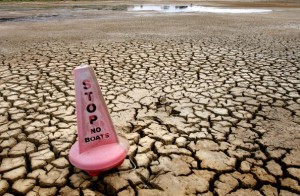
Christopher Joyce, NPR
Christopher Joyce is a correspondent on the science desk at NPR. His stories can be heard on all of NPR's news programs, including NPR's Morning Edition, All Things Considered, and Weekend Edition.
Joyce seeks out stories in some of the world's most inaccessible places. He has reported from remote villages in the Amazon and Central American rainforests, Tibetan outposts in the mountains of western China, and the bottom of an abandoned copper mine in Michigan's Upper Peninsula. Over the course of his career, Joyce has written stories about volcanoes, hurricanes, human evolution, tagging giant blue-fin tuna, climate change, wars in Kosovo and Iraq and the artificial insemination of an African elephant.
For several years, Joyce was an editor and correspondent for NPR's Radio Expeditions, a documentary program on natural history and disappearing cultures produced in collaboration with the National Geographic Society that was heard frequently on Morning Edition.
Joyce came to NPR in 1993 as a part-time editor while finishing a book about tropical rainforests and, as he says, "I just fell in love with radio." For two years, Joyce worked on NPR's national desk and was responsible for NPR's Western coverage. But his interest in science and technology soon launched him into parallel work on NPR's science desk.
In addition, Joyce has written two non-fiction books on scientific topics for the popular market: Witnesses from the Grave: The Stories Bones Tell (with co-author Eric Stover); and Earthly Goods: Medicine-Hunting in the Rainforest.
Before coming to NPR, Joyce worked for ten years as the U.S. correspondent and editor for the British weekly magazine New Scientist.
Joyce's stories on forensic investigations into the massacres in Kosovo and Bosnia were part of NPR's war coverage that won a 1999 Overseas Press Club award. He was part of the Radio Expeditions reporting and editing team that won the 2001 Alfred I. duPont-Columbia University journalism award and the 2001 Sigma Delta Chi award from the Society of Professional Journalists. Joyce won the 2001 American Association for the Advancement of Science excellence in journalism award.

Photo by WILLIAM WEST/AFP/Getty Images
This photo taken 16 November, 2006 shows a warning sign for boats sitting on the bottom of the empty Green Hill Lake outside the small rural town of Ararat, some 170 kms west of Melbourne.
Nowadays, when there’s a killer heat wave or serious drought somewhere, people wonder: Is this climate change at work? It’s a question scientists have struggled with for years. And now there’s a new field of research that’s providing some answers. It’s called “attribution science” — a set of principles that allow scientists to determine when it’s a change in climate that’s altering weather events … and when it isn’t.
The principles start with the premise that, as almost all climate scientists expect, there will be more “extreme” weather events if the planet warms up much more: heat waves, droughts, huge storms.
But then, there have always been periodic bouts of extreme weather on Earth, long before climate change. How do you tell the difference between normal variation in weather — including these rare extremes — and what climate change is doing?
That sort of discernment is difficult, so scientists have had a rule, a kind of mantra: You can’t attribute any single weather event to climate change. It could just be weird weather.
Then they took a close at last year’s heat wave in Australia. Continue Reading →
